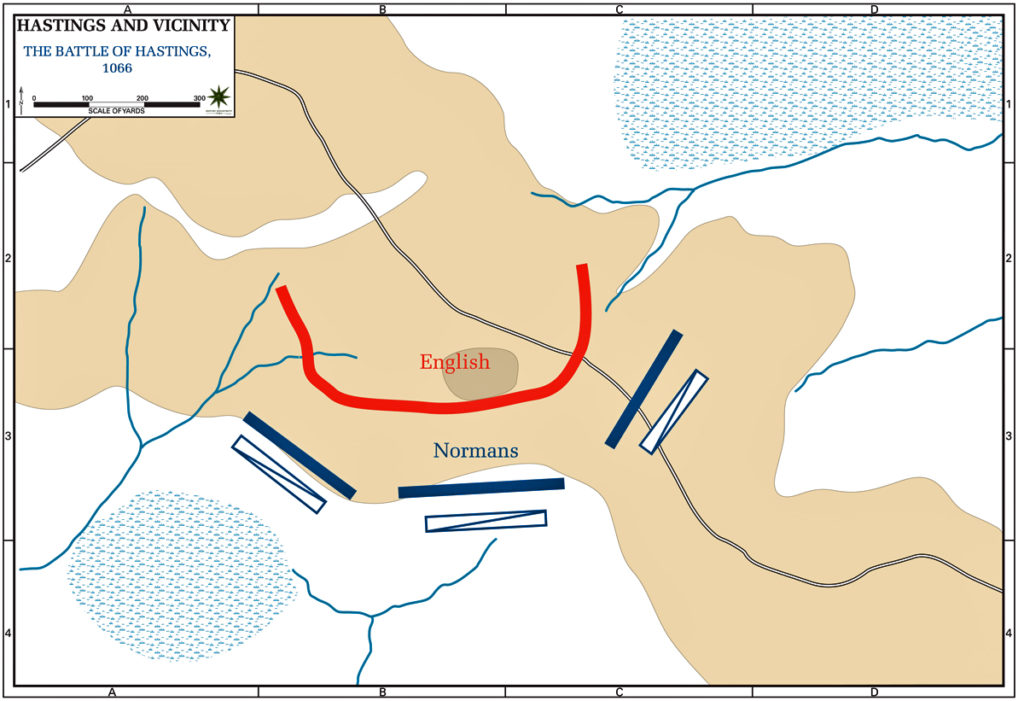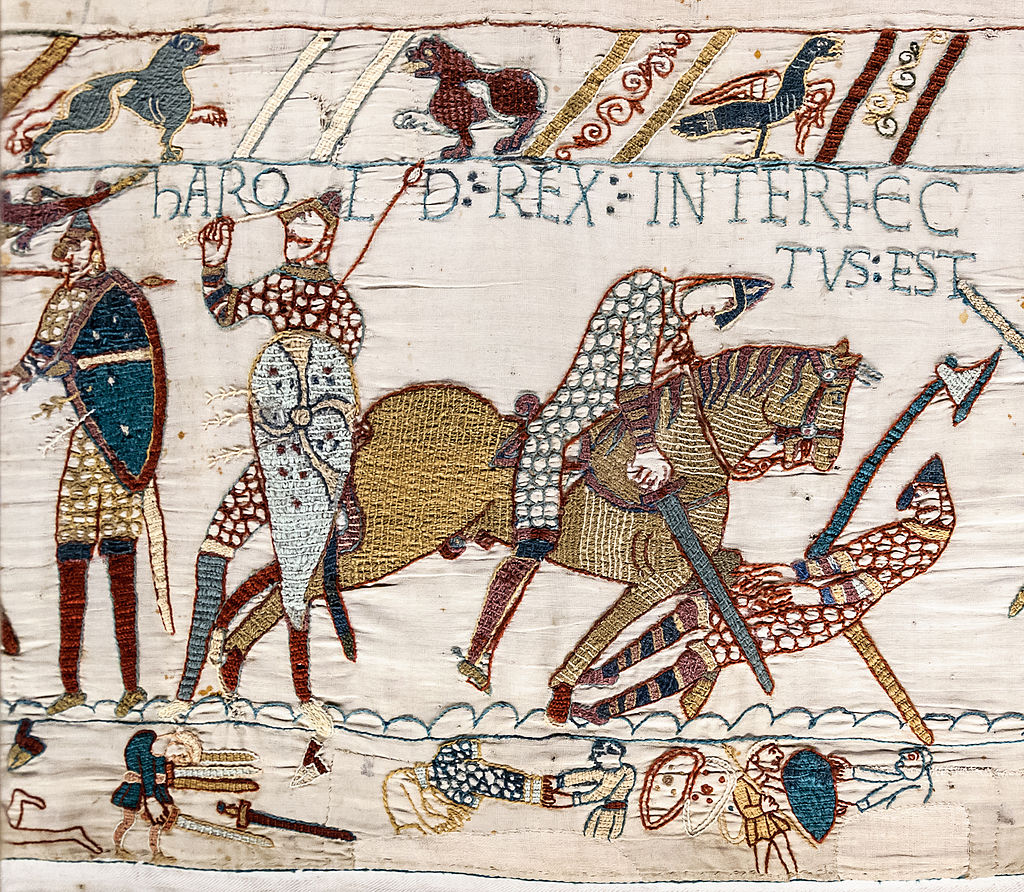The Battle of Hastings took place on the 14th of October 1066. It was the beginning of the Norman conquest of England and was fought between the Norman-French army of the Duke of Normandy, and an English army under the Anglo-Saxon King Harold.
Backround, Battle and aftermath
In January of the same year, King Edward the Confessor died, never having fathered any children. Therefore, Harold was crowned King. He was faced with several attempts of invasions by William, Duke of Normandy, Tostig – his own brother and Harold III of Norway.
Tostig and Harold of Norway were killed in the Battle of Stamford Bridge on the 25th of December 1066. Five days prior they had defeated the English in the Battle of Fulford.
With both of them killed, William was Harold’s last opponent. While Harold’s troops were still recovering from the battle of Stamford Bridge, William landed his own army on the English shore and began his conquest.
Approximately 17,000 soldiers fought in the Battle of Hastings. 10,000 of those on William’s side, the rest on Harold’s. The Norman army was composed of infantry, archers and cavalry, whereas the English troops consisted almost entirely of infantry.
As Harold marched south to surprise William, the Normans marched north to confront them, once they were spotted by scouts.

On the 14th of October the battle begun and lasted from about 9 am to dusk. Near the end of the battle, Harold was killed, which led his army to be defeated by the invaders. Historians estimate, that about 2,000 Normans and 4,000 English died during the battle. Even though, these numbers may be much higher or much lower.

On the site of the battle, William later founded Battle Abbey. The high altar is said to be placed in the exact spot that Harold died.
From the battleground William and his army marched towards London, fighting against forces from the city. Then the English leaders surrendered t the invaders. On Christmas Day, William was crowned and acclaimed King of England, in Westminster Abbey.
After the Coronation uprising of the English noblemen continued. Even though, every rebellion was put down by William.
